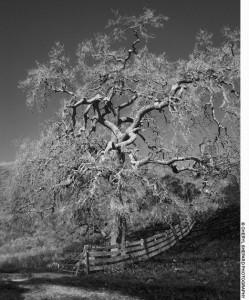 On Saturday, October 15, 2016, an Op-Ed column by Roger Cohen appeared in the New York Times. In it Mr. Cohen related an encounter between a white (presumably) man and Veronica Zuleta, a Latina woman originally from El Salvador, who has been a US citizen for more than 10 years. While standing in line at an upscale market, he reportedly said to Ms. Zuleta “You should go to Safeway. This store is for white people.”
On Saturday, October 15, 2016, an Op-Ed column by Roger Cohen appeared in the New York Times. In it Mr. Cohen related an encounter between a white (presumably) man and Veronica Zuleta, a Latina woman originally from El Salvador, who has been a US citizen for more than 10 years. While standing in line at an upscale market, he reportedly said to Ms. Zuleta “You should go to Safeway. This store is for white people.”
I first heard about this while sitting in a group in Palo Alto CA, where I live. On hearing these words, there was an audible gasp from those present. While the words might have been shocking, the strength of the gasp was based on the fact that the event had occurred in Draeger’s Market in Menlo Park, which is right next door to Palo Alto. “That happened HERE???” we all seemed to be gasping. And I was one of the gaspers. And for the same reason as everyone else. HERE???? Almost immediately on reflection I thought “How naïve, Sara!” And indeed it was. And yet it was very spontaneous.
I have thought a lot about this in the days that followed my hearing about the event. And I have asked myself many questions: Why don’t I see the prejudice that is operating all around me? Do I have such deep, unrecognized prejudice that it blinds me to what otherwise would be obvious? Have many of us become so sophisticatedly politically correct that, unless the prejudice is directed at oneself, is it invisible? I sometimes feel prejudice directed toward me as a woman. Would men around me see it? Would other women?
And would this encounter have happened “pre-Trump?” In all probability the man in the market would have felt this way pre-Trump, but would he have voiced his feelings? We’ll never know, but I suspect not. And that is a blog for another day.
For now I say haven’t we had enough of the prejudice that operates in our communities? Granted, in some places it’s more outrageous than in other places, but everywhere, it is pernicious and keeps us seeing some individuals as “other.” I wonder about times when an underlying prejudice is clothed as something else that is “acceptable.” I think about the various reactions to the kneeling protest Colin Kaepernick is making before football games in which he is playing. Who is right and who is wrong or the basis of some of the reactions is an open question, but I do think it is upsetting that in some cases there seems to be more anger about what he is doing than about what he is protesting. We all know the statistics, or, if not the specific numbers, at least what they indicate. No matter how you measure it, percentage-wise more African Americans are killed by police officers in this country than are Caucasians. And I think what many of us are concerned about is not just the statistic, but what appears to be the unprovoked or at least unnecessary shootings in so many of the cases we hear about.
We might say “but what can I do?” And I think that’s the question. . . what can each of us do? What if we say categorically “OK, that’s enough. We have made lots of progress, but not enough. We are better than this, and it’s time to step up.” What is the first step you could take? It doesn’t need to be huge; it’s just needs to happen. Each of us is responsible.
“No snowflake in an avalanche feels responsible.” Stanislaw Jerzy Lec

